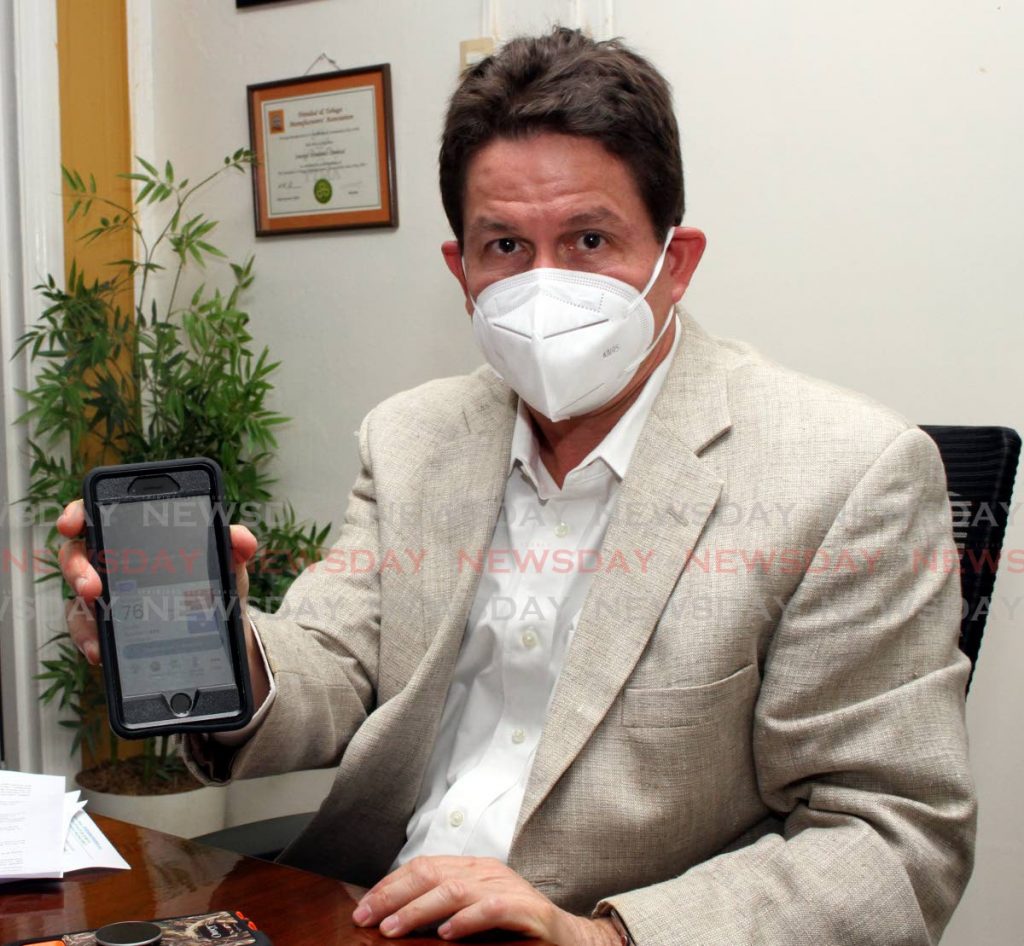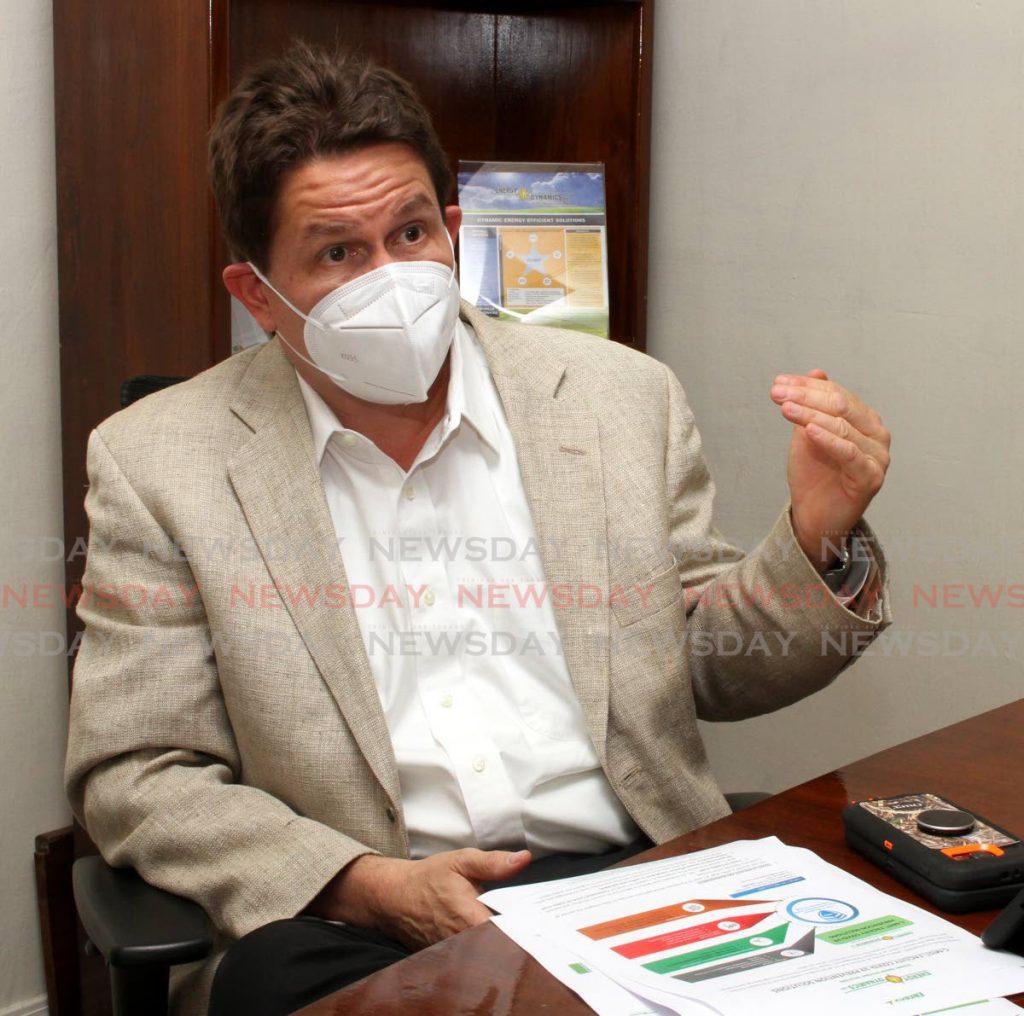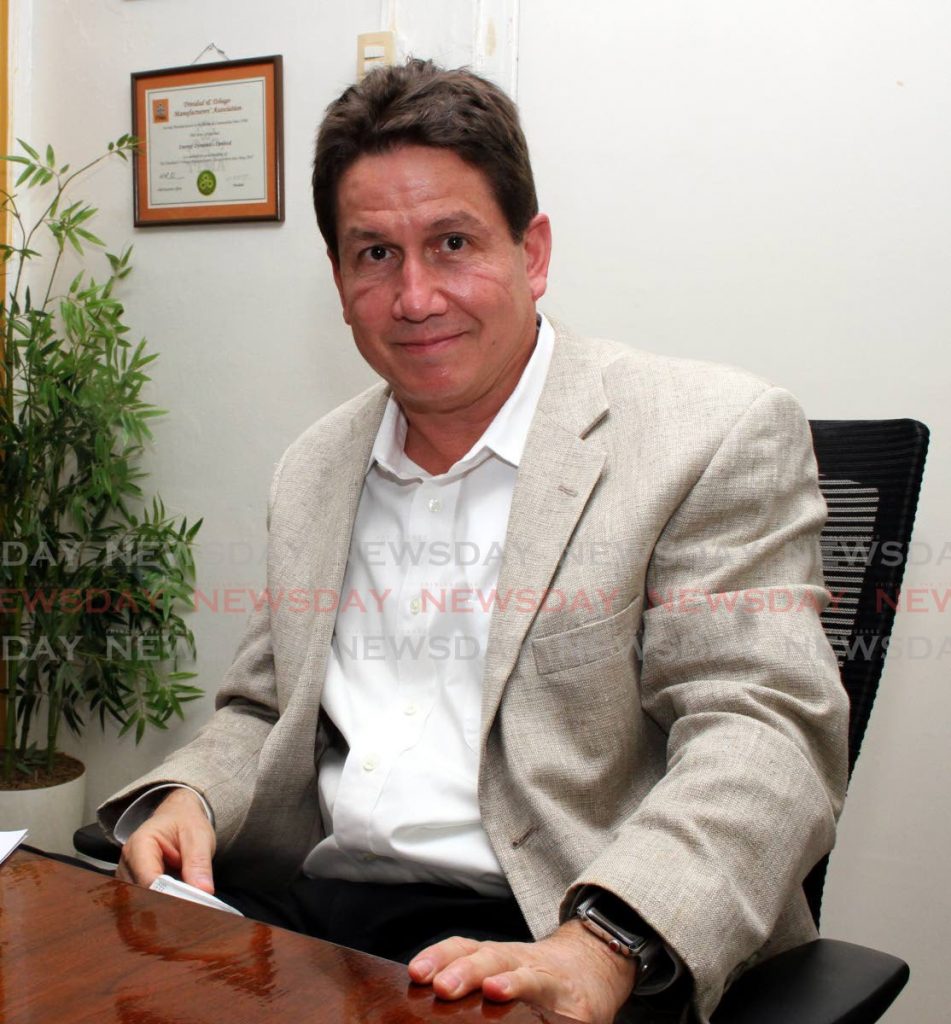Energy Dynamics shows how air quality systems reduces spread of viruses

Energy efficiency company turned sanitisation specialists, Energy Dynamics Ltd is using its knowhow and technology to innovate ways to fight the covid19 pandemic, with a system that was launched in Jamaica earlier this year.
The four-part system – called the C-MIST system – is designed for workspaces. The aim is to assess and manage everything related to office air circulation and provide a way that would not only change the way companies consider their defense against covid19, but sanitisation in general. In a conversation with Business Day, managing director of Energy Dynamics Ltd, Andre Escalante said the C-MIST system uses management, indoor environmental quality engineering, sanitisation and technology (MIST) to create a covid19-resistant (the C) facility that improves air quality and would combat other viral diseases as well.
As an energy efficiency company, Escalante said, Energy Dynamics has done hundreds of energy efficiency audits in the region for organisations like Caricom and Inter-American Development Bank, and in TT for companies and organisations like Angostura, the TT Civil Aviation Authority and the National Energy Company. As the pandemic intensified, the company decided to augment its audit process to evaluate a building's ability to resist viruses.
“So we do a covid19 audit. We measure air quality and find the gaps. We audit the procedures in the office. Most offices have them but do their staff follow them? Do they have systems to manage it? Do they have a corporate system policy?”

PHOTOS BY ANGELO MARCELLE -
He says after auditing they take a look at the quality of the air in the building and the way it flows from one place to another. He said in many buildings, there isn’t enough fresh air. Regionally buildings are not designed for fresh air because allowing hot air into the building will raise energy costs. Locally although energy costs are lower, buildings are built the same way. But fresh air dilutes the virus – and makes the place smell nicer.
Energy Dynamics also advises on what sanitation services would be needed to improve air quality and reduce viruses and bacteria from spreading on surfaces. Escalante said through their certification in sanitation consultancy from the International Well Building Institute, the company learned that even sanitisation has to be done the right way.
Lastly they introduced technology that would improve the air quality, kill viruses and even remove volatile organic compounds that could cause other respiratory problems.
Things like UV lights that can kill bacteria and viruses are installed in the AC systems. “Some people have the UV lights, but just for cleaning the AC units. But you need a stronger intensity if you want to clean the air going through the building.” They also install filters in the AC systems similar to those used in hospitals to trap bacteria, air particles and viruses.
But one of their most state-of-the-art services is an electronic air cleaner which kills viruses, including covid19, in the air and on surfaces.
“One of the technologies is bipolar ionisation,” Escalante said. “This deactivates the virus. It produces ions in the AC system and the ions come out into the air and if it latches onto a virus it removes the hydrogen molecule from it, thus killing the virus.”
He said the bipolar ionisation system not only kills viruses but it removes mould and bacteria.

Energy Dynamics managing director Andre Escalante says even without the pandemic companies should look at new air quality systems. -
“These systems are in the White House, LAX Airport (Los Angeles) and even used in schools.”
Energy Dynamics also provides organisations with technology that gives a manager control over the temperature and humidity of the newly managed AC system, updates on air quality and notifications if any of the parts of the system stops working.
He said depending on the number of upgrades a building would need the cost for enhancing the building would vary. In some cases where only one part of the technology would be needed, it could cost up to about $2,000, but for the full works, depending on the size and number of buildings, upgrades would cost more.
Air quality experts
Energy Dynamics also audits, consults and provides energy-friendly solutions to companies in Barbados, the Dominican Republic, Jamaica, Puerto Rico, the Dutch Caribbean and the Eastern Caribbean as well as internationally.
Escalante, who holds a bachelor's degree in biomedical engineering, learned about health systems, energy efficiency and marketing from various positions he held in hospitals, air conditioning companies and marketing companies.
He said when the company first started in 2000, not many people were interested in energy efficiency management.
“While I was with York Air Conditioning I was asked by hotel associations to do a lecture on energy efficiency because the cost of energy in the rest of the region is much higher than in TT. But in those days there wasn’t much talk about energy efficiency. So I developed a seminar on energy efficiency in 1998.”
He said the presentation was so well received that he would do the presentation at hotels across the region. Eventually, because there were few avenues to get access to the energy saving technologies that he spoke about, hoteliers would approach him and ask where they could get some of the products he described.
“That was how I launched Energy Dynamics.”
In March, he was speaking to one of his customers in Jamaica whose business had just been shut down because a person with the virus came to one of their offices and infected about 50 people. The customer asked if Escalante could develop a system that could work as a standard to ensure that buildings are covid19 resistant.
Escalante and a team of five engineers then went on an information-gathering campaign, seeking out best practices all over the world through looking at research from the WHO and other major health organisations, conducting market research through the help of their customers all over the world, seeking out new technology that would enhance a building's ability to fight the virus, and best practices that would help maintain physical distancing in the office.
“We went through a lot of information. We spoke to customers all around the world and we pulled things together and we came up with our C-MIST system. We are now starting to push it here. We did a presentation for TTMA a couple weeks ago, but places like Jamaica are very keen on it. ”
The company joins others in using their know-how and expertise in joining the fight against covid19. Escalante said since the outbreak of covid19, many entities have done the same, and they are simply throwing their hat into an ever-growing ring.
“There definitely has been a boom in sanitisation since the start and spread of covid19, but there has not been much in making the workplace safer for people, and that is where this comes in. Even without the pandemic, people should look into these systems. We have to start developing building codes to start looking at how to make indoor workspaces better. You saw it before the pandemic. One person would come into an office with the cold and before long the entire staff has it. But if you put in these things, that would kill viruses it will get rid of mould and mildew on the walls. This should be a standard. With or without a pandemic.”


Comments
"Energy Dynamics shows how air quality systems reduces spread of viruses"